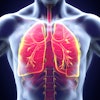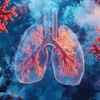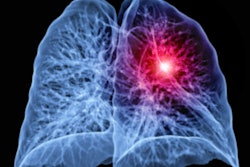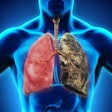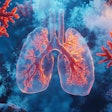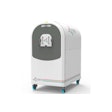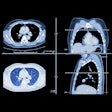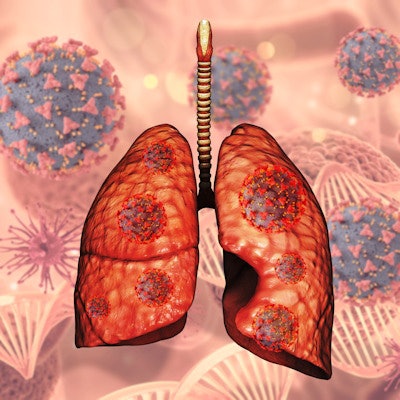
Adding a machine-learning algorithm to a computer-aided detection (CAD) system applied to chest CT images speeds the diagnosis of COVID-19, a study published July 6 in BMC Bioinformatics suggests.
The results could help clinicians and other caregivers to offer appropriate treatment to COVID-19 patients more quickly -- a key benefit in a time when hospitals may be struggling to keep up with higher admission rates, noted a team led by Mohammad Alshayeji, PhD, of Kuwait University in Kuwait City.
The fact that the machine-learning model can automatically flag infected regions of the lung based on data from the CT scan, calculate a severity score, and categorize disease means that "manual tasks can be eliminated and medical professionals can start treatment based on stage of disease without delay," the group wrote.
Chest x-ray and CT are considered the go-to modalities for diagnosing COVID-19, with many clinicians considering CT to be the better tool, the authors wrote. COVID-19 on CT exams tends to manifest in the lung as ground-glass opacities, peripheral distribution, multilobular involvement, and bilateral lesion involvement.
"Physicians can identify a more detailed disease picture by using a CT scan than by using conventional x-rays," they explained. "Moreover, a CT scan can identify the exact problem location more precisely."
For their study, Alshayeji and colleagues included 750 CT images taken from the China National Centre for Bioinformation to develop a machine-learning-based algorithm that could be incorporated into a CAD system and hopefully improve both diagnosis and treatment of the illness. The image dataset included both infected and healthy individuals; the machine-learning results were used to flag any pertinent features indicating either condition. The team categorized CT disease severity scores as mild (lesion covers less than 25% of lung area); moderate (25% to 50% of lung area); and severe (greater than 50%).
The researchers found that the machine-learning algorithm performed well on all measures.
| Performance of a machine learning algorithm with CAD for identifying COVID-19 on CT imaging | |
| Measure | Result |
| Accuracy | 99.7% |
| Area under the curve | 0.99 |
| Negative predictive value | 99.6% |
| Positive predictive value | 99.8% |
| Sensitivity | 99.6% |
| Specificity | 99.9% |
"Using the proposed framework, we were able to automatically [and precisely] detect whether the input chest CT scan image belonged to a COVID-19 patient or a normal case," the group reported.
The study demonstrates that using a machine learning model with CAD for chest CT shows promise for improving COVID-19 patient care, according to the researchers.
"This model could be employed in hospitals to automatically detect COVID-19 cases and identify the disease stage," they concluded. "Moreover, patients will be given appropriate treatment, based on the severity level, without any delay."


